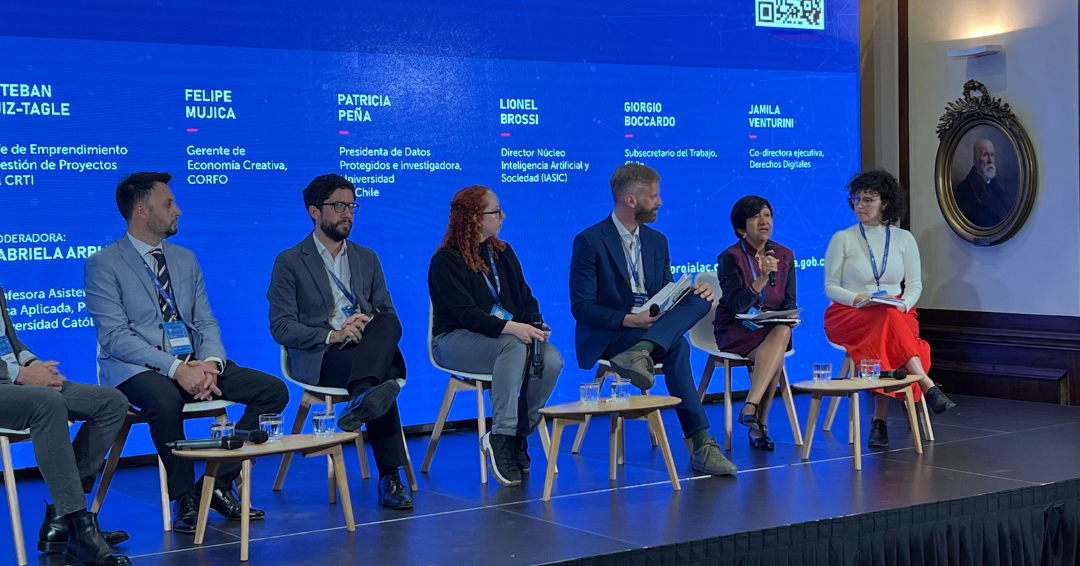The researcher on #RegulaciónConvergente Patricia Peña and the academic at the Faculty of Communication and Image (FCEI) Lionel Brossi were part of the panel “Potential Risks and Opportunities of Artificial Intelligence in Exercising People’s Rights in Chile” held on October 23rd as part of the “FORUM ON THE ETHICS OF ARTIFICIAL INTELLIGENCE IN LATIN AMERICA AND THE CARIBBEAN: Toward a Responsible Use of AI in the Region”, organized by UNESCO, CAF and the Ministry of Science, Technology, Knowledge and Innovation of Chile.
Patricia Peña stated that these issues must be part of a citizen debate, in which the civil society participates “because they are currently not of interest to them. Discussing concerns about people’s rights includes girls, youth, women, indigenous communities, people with disabilities… they must be able to access discussions about the model and paradigm that we want for artificial intelligence and how we will measure the impact on the communities and societies in general.”
In turn, Lionel Brossi addressed the need for children and adolescents to participate in the various processes involving the design, development, implementation and use of artificial intelligence, not only by listening to their ideas and perspectives but also incorporating them into these processes.
A ministerial meeting with high-level authorities in the region was held in parallel to the event in order to establish a clear roadmap for the development of ethical and inclusive policies that guarantee human rights in relation to AI based on the UNESCO Recommendation on the Ethics of Artificial Intelligence. The goal is to set up a regional council that will constitute a unique space for AI governance in Latin America and the Caribbean and serve as a political forum for discussing and reaching consensus to develop AI policies in the region based on ethical and inclusive approaches.
Additionally, Patricia Peña stressed that “first, we need to talk about not being discriminated. There is an algorithm that can discriminate, and that is very complex. Then, there are different types of personal data to which we need to pay attention. And this happens in countries like ours, where this issue is pending. The bill has been under discussion for 8 years, and we hope it is approved soon.”
Peña also indicated that another relevant topic is the right to transparency: “We know that these systems work with recommendation and profiling systems, and that also must prompt us to think about an AI that is in the public interest,” she said.
The objectives established in the forum, which will mark the roadmap, are:
- Create a governance space: Create the first and only space for AI knowledge and governance in Latin America and the Caribbean based on the principles of the Recommendation. The Council must become a decision space for the region’s governments in AI issues.
- Define priority areas: Exchange experiences and learn about best practices, policies and regulations to maximize the positive social and economic effects of the rapid advances of AI-powered technologies.
- Monitor progress: Monitor the progress made in the development and application of the specific tools developed under the Recommendation, such as the Ethical Impact Assessment and the Readiness Assessment.
- Consensus on actions and practices: Reach consensus on common actions and practices, and have enhanced coordination so that the voice of Latin America and the Caribbean is present in global spaces for the discussion of AI and in the presentation of results at the UNESCO General Conference.
Text extracted from the FCEI. Review the original note HERE.


